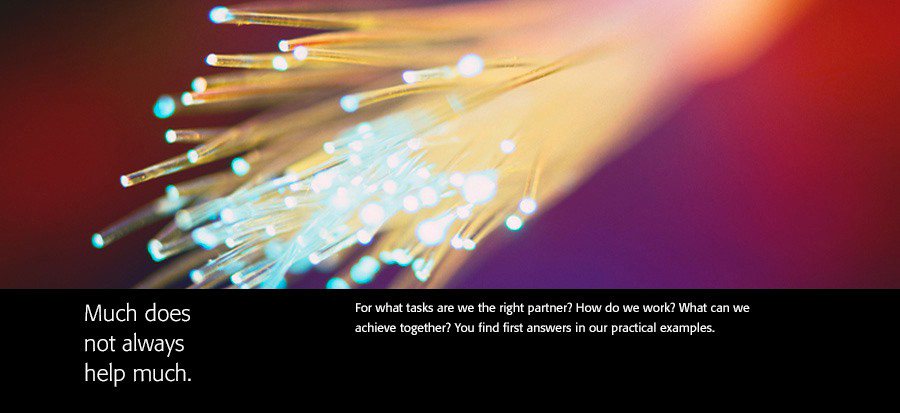

Practical Example
Project Management
Competence model with integrated feedback system for our 40-plus project managers
Requirements of the client:
“What are we actually doing for our experienced project managers who have successfully carried our projects for years?“ asked the technical managing director during a management meeting, and he suggested considering the training, development, support and incentives of the 40-plus employee group, since proprietary programmes included no offering for this target group.
Broadband offerings and junior executive programmes were not suitable or not used. On the other hand, these are project managers who are responsible for project successes, economically good results and team performance. Besides, they are increasingly assigned with the training of new project managers as well as with integrating and supporting junior project managers.
The following questions that have been posed to us were thus justified: How can our experienced project managers further develop? What kind of learning and training do they need? What is special about good project managers? What key competences do they possess and which behaviours lead them to success?
Our approach:
After having developed a competence model for experienced project managers on the basis, inter alia, of expert interviews, we have integrated the decisive competences as well as assigned the relevant skills and then aligned the whole to corporate practices.
The company-specific competence model serves both as criteria catalogue in auditing procedures as well as in coaching und training sessions as part of advanced training for special topics. Furthermore, it includes a feedback system, in order to combine effective learning and the rewarding of professional experience with support measures. This facilitated feedback procedure includes so called “project dialogues,” which are individually evaluated as potential perspective for project managers.
Key competences for project managers – an extract:
Personal competence: personality und self-confidence / decision-making abilities / assessment of risks and chances / using own scopes for decision / entrepreneurial thinking and action / future orientation and the ability to initiate innovation processes and to control them with strong impetus
Communication behaviour: competent argumentation / clear expression of opinion / promotion of positive atmosphere for communication / target-oriented conversational skills
Cooperative behaviour: helpfulness / integrational behaviour / conflict perception and management / avoidance of escalation / dealing with criticism / signal sensitivity
Systemic competence: systematic approach / creation of order and structure / development of problem solutions / interlinked thinking and acting
Process and work behaviour: active acquisition of information / appropriate information sharing / efficient use of work methods and resources / holistic thinking during processes / coordination and improvement of process flows and subtargets
Behaviour in stress situations: coping with multiple stresses / capacity to act upon resistance and setbacks / processing of unpleasant tasks / responsible handling of one’s own mental and physical reserves
The result:
A company-specific competence model for project managers, being used in a feedback system for this employee group, acts as personnel retention and development factor. 360-degree feedback allows grasping the external client perspective as well as the internal perspective of project teams, working groups and decision-makers. On top of this is comprehensive integration within practical operation. All these aspects make the competence model a success for the target group of “professionally experienced project managers,” because it transfers knowledge back into the company so that today’s junior project managers can later benefit from it. With its initiative, the company’s technical management has built up the 40-plus project managers into a strategic value of the company.


